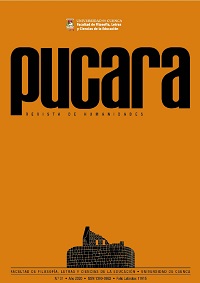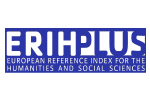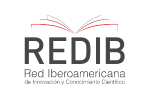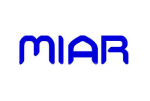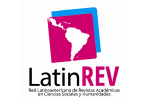Validation of the Initial Reading and Writing Test
DOI:
https://doi.org/10.18537/puc.31.05Keywords:
kindergarten, test validation, emergent literacy, young children’s performanceAbstract
Emergent literacy skills play a fundamental role in children’s overall development and predict their success in school. At the national level, no valid and reliable tests have been found to assess these skills; therefore, this study aimed to (a) validate the test Prueba de Lectura y Escritura Inicial (PLEI) to assess Ecuadorian kindergartners’ emergent literacy skills and (b) determine the level of performance of these children in the test. The participants were 80 kindergarten children coming from four public schools of Cuenca and Paute. Six experts evaluated the validity of the PLEI. The results indicated that the PLEI is valid and reliable for assessing the emergent literacy skills of kindergarten children. The methodological and educational implications of these results are discussed.
Downloads
References
Bojorque, G. y Mena, S. (2020). Prueba de Lectura y Escritura Inicial. Documento no publicado.
Bonilla, F., Botteri, A., y Vilchez, A. (2013). Validación de una Prueba de Alfabetización Inicial (PAI) en instituciones públicas y privadas pertenecientes a la UGEL N. ° 07 (Tesis de Mestría). Pontificia Universidad Católica del Perú. Lima-Perú.
Cabell, S., Justice, L., Kaderavek, J., Pence, K. y Brett-Smith, A. (2009). Emergent literacy. Lessons for success. San Diego, California: Plural Publishing INC.
Cabell, S., Justice, L., Zucker, T., y Kilday, C. (2009). Validity of teacher report for assessing the emergent literacy skills of atrisk preschoolers. Language, Speech, and Hearing Services in Schools, 40(2), 161–173.
Cain, K., y Oakhill, J. (2007). Reading comprehension difficulties: correlates, causes, and consequence. En K. Cain, y J. Oakhill (Eds.), Children’s comprehension problems in oral and written text: a cognitive perspective. (pp. 41-75). Guilford Press.
Catts, H., Fey, M., Tomblin, J., y Zhang, X. (2002). A longitudinal investigation of reading outcomes in children with language impairment. Journal of Speech. Language, and Hearing Research, 45(6), 1142–1157.
Clemente, M., Ramírez, E., y Sánchez, M. (2010). Theoretical approaches and teaching practices in early literacy instruction. Cultura y Educación, 22(3), 313-328.
Cohen, N. (2010). The impact of language development on the psychosocial and emotional development of young children. Encyclopedia of language and literacy development. London: Canadian Language and Literacy Research Network.
Conejo, L., y Carniol, A. (2017). Conocimientos sobre la lectoescritura emergente y prácticas en las aulas para su promoción: Un estudio con docentes de preescolar en Costa Rica. Revista Costarricense de Psicología, 36(2), 105-121.
Cuetos, F., Rodríguez, B., Ruano, E., y Arribas, D. (2007). Prolec-R, Batería de evaluación de los procesos lectores, Madrid: TEA.
Defior, S., y Serrano, F. (2011). Procesos fonológicos explícitos e implícitos, lectura y dislexia. Revista Neuropsicología, Neuropsiquiatría, Neurociencias, 11(1), 79-94.
Dong, Y., Xiao, S., Wei, D., y Tang, Y. (2020). The Effects of Home Literacy Environment on Children’s Reading Comprehension Development: A Meta-analysis. Educational Sciences: Theory and Practice, 20(2), 63-82.
Duncan, G., Dowsett, A., Claessenks, J., Magnuson, A., Huston, P., Aletha, C.,…Japel, C. (2007). School readiness and later achievement. Developmental Psychology, 43(6), 1428-1446.
Goikoetxea, E., y Martínez, N. (2015). Los beneficios de la lectura compartida de libros: breve revisión. Educación XXI, 18(1), 303-324.
González, M., López, S., Villar, J., y Rodríguez, A. (2013). Estudios de predictores de la lectura. Investigación en Educación, 2(11), 98-110.
Gutiérrez, R. y Díez, A. (2015). Aprendizaje de la escritura y habilidades de conciencia fonológica en las primeras edades. Bordón, 67(4), 43-59.
Gruhn, S., y Weideman A. (2017). The initial validation of a test of emergent literacy. Per Linguam, 33(1), 25-53.
Hagg, C. (2017). Predictores en la Lectura y Escritura en Sujetos Mexicanos en Educación Primaria (tesis doctoral). Universidad de Málaga, España.
INEVAL. (2017). Instituto Nacional de Evaluación Educativa. Proyecto Ser Estudiante Infancia-SEIN. Quito-Ecuador.
INEVAL. (2007). Instituto Nacional de Evaluación Educativa. Informe de resultados Nacional. Ser bachiller año lectivo 2017-2018. Quito.
Invernizzi, M., Justice, L., Landrum, T., y Booker, K. (2005). Early Literacy Reading in Kindergarten: Widespread Implementation in Virginia. Journal of Literacy Research, 36(4), 479-500.
Invernizzi, M., Landrum, T., Teichman, T., y Townsend, M. (2010). Increased Implementation of Emergent Literacy Screening in Pre-Kindergarten. Early Childhood Education Journal, 37(6), 437-446.
Justice, L., Kaderavek, J., Fan, X., y Hunt, A. (2009). Accelerating preschoolers’ early literacy development through classroombased teacher-child storybook reading and explicit print referencing. Languaje, Speech, and Hearing Services in Schools, 40(1), 67-85.
Kline, P. (1999). The Handbook of Psychological Testing. London: Routledge.
Lonigan, C. (2006). Development, assessment, and promotion of preliteracy skills. Early Education and Development, 17(1), 91- 114.
Lundberg, I., Larsman, P., y Strid, A. (2012). Development of phonological awareness during the preschool year: The influence of gender and socio-economic status. Reading and Writing: An Interdisciplinary Journal, 25(2), 305-320.
Marí, M., Gil, M., y Ceccato, R. (2019). Habilidades predictoras de éxito en el aprendizaje inicial de la lectura y su relación con dos
métodos de enseñanza. Revista INFAD de Psicología. 3(1), 149-158.
Mena, S. (2020). Enseñanza del código alfabético desde la ruta fonológica. Revista Andina de Educación, 3(1), 2-7.
Merino, J., Mathiesen, M., Domínguez, P., Rodríguez, C., y Soto, M. (2018). Impacto de un programa de desarrollo profesional
docente en la calidad del ambiente para la alfabetización emergente. Perfiles educativos, 11(159), 35-50.
Montealegre, R., y Forero, L. (2006). Desarrollo de la lectoescritura: Adquisición y dominio. Acta Colombiana de Psicología, 1(9), 25-40.
National Early Literacy Panel (NELP). (2008). Developing early literacy: Report of the National Early Literacy Panel. Washington, DC: National Center for Family Literacy
Piacente, I. (2012). Comprensión verbal en alumnos universitarios. Orientación y Sociedad, 12, 1-16.
Salgado, H. (2000). Cómo enseñamos a leer y a escribir. Buenos Aires: Editorial Magisterio del Río de la Plata.
Shanahan, T. (2008). Introduction to the report of the National Early Literacy Panel. En National Early Literacy Panel (Ed.), Developing early literacy: Report of the National Early Literacy Panel Washington, DC: National Institute for Literacy.
Suárez-Coalla, P., García, M., y Cuetos, F. (2014). Predictores de la lectura y escritura en castellano. Infancia y Aprendizaje, 36(1), 77-89.
UNESCO. (2013). Situación Educativa de América Latina y el Caribe: Hacia la educación de caidad para todos al 2015. Santiago de
Chile, UNESCO.
UNESCO. (2015). El Laboratorio Latinoamericano de Evaluación de la Calidad de la Educación (LLECE). Los aprendizajes de los estudiantes de América Latina y el Caribe. Santiago de Chile, UNESCO.
Villalón, M., y Rolla, A. (2008). Prueba de alfabetización inicial (PAI). Chile: Pontificia Universidad Católica de Chile.
Villegas, C. (2010). Análisis del proceso de la adquisión de nuevo vocabulario a través del tratamiento de la práctica lectora.
Tiempo de Educar, 11(21), 9-30.
Wagner, R., y Torgesen, J. (1987). The nature of phonological processing and its casual role in the acquisition of reading skills. Psychological Bulletin, 101(2), 192-212.
Whitehurst, G., y Lonigan, C. (2003). Get Ready to read! An early literacy manual: screening tool, activities and resources. USA:
Pearson Early Learning.
Published
How to Cite
Issue
Section
License
Copyright (c) 2020 Freddy Gustavo Duchimasa Ochoa, Gina Catalina Bojorque Iñegues

This work is licensed under a Creative Commons Attribution-NonCommercial-ShareAlike 4.0 International License.
Copyright © Autors.

You are free to:
 |
Share — copy and redistribute the material in any medium or format |
 |
Adapt — remix, transform, and build upon the material for any purpose, even commercially. |
Under the following conditions:
 |
Attribution — You must give appropriate credit, provide a link to the licence, and indicate if changes were made. You may do so in any reasonable manner, but not in any way that suggests the licenser endorses you or your use. |
| NonCommercial — You may not use the material for commercial purposes. | |
| ShareAlike — If you remix, transform, or build upon the material, you must distribute your contributions under the same license as the original. |
| No additional restrictions — You may not apply legal terms or technological measures that legally restrict others from doing anything the licence permits. |

